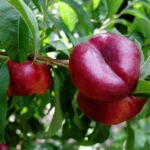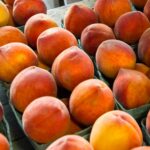Australia's Costa lifts profit by a quarter in FY2018, driven by strong citrus demand

 Australia-based Costa Group registered a 26% rise in net profit to AUD$76.7 million for the 2018 financial year, thanks partly to strong export demand for citrus which offset challenging conditions for blueberry production in Morocco.
Australia-based Costa Group registered a 26% rise in net profit to AUD$76.7 million for the 2018 financial year, thanks partly to strong export demand for citrus which offset challenging conditions for blueberry production in Morocco.
Australia's biggest listed fresh produce company also notched 10% revenue growth to AUD$1 billion over the period ended July 1.
In its results, the company announced a AUD$67 million expansion of glasshouse tomato production in New South Wales and said it has made six avocado-related acquisitions over the last 18 months.
“Performance in FY2018 once again reinforces the value and resilience of our diversified portfolio and business model," said Costa Group CEO Harry Debney.
"The citrus category had a standout performance, boosted by excellent crop quality and strong export demand, while mushrooms and tomatoes also performed well, with results exceeding targets.
"This performance countered a materially lower than expected contribution from African Blue due to prolonged cold weather, causing up to an eight week delay in maturity of the Moroccan crop."
Costa said it made "significant progress" during the year on its growth projects, including berry expansion plantings across Australia, China and Morocco, continued construction of additional capacity at the Monarto, South Australia mushroom farm and expansion of ist avocado business - the company's newest vertically integrated core produce category.
Berries and citrus
Costa said blueberry production over the period was impacted by lower yields. It said the cold Northern Hemisphere spring and early summer period delayed the Morocco harvests, with yields in the country around 10% lower.
The company noted that berry industry volume remains high, with corresponding pricing offsets being the consequence, particularly in the peak season. Blueberry volume was up +25.2%, with pricing down -7.5%, while raspberry volume growth was +19.1% and pricing down -6.3%.
Costa also said that it had established a dedicated varietal improvement facility at Atherton (FNQ) with the aim of developing varieties specifically suited to low latitude environments, both in Australia and overseas, especially China and Mexico.
The citrus category, which Costa said achieved a "standout result" for the financial year, benefitted from a late start to the 2017 season and early start to the 2018 season coupled with excellent crop quality and strong export market demand for navel oranges and seedless mandarins.
The 2018 calendar season is forecasted to produce circa 80,000 metric tons (MT), a 20% reduction on the prior season, reflecting the normal biennial bearing cycle of citrus crops.
The company said that with 75% of its citrus exporting to countries including Japan, the U.S. and China, the reduction of Korean citrus trade tariffs has opened up an exciting new export market, highlighted by the fact that consumer preferences are similar to those of Japan, but with greater per capita demand.
International berry growth
The company noted its China expansion program is progressing well, with a total of 100 hectares planted at the end of the financial year. These plantings are across three farms, with 77 hectares of blueberries, 16 hectares of raspberries and 7 hectares of blackberries.
"A further 65 hectares consisting predominantly of blueberries is to be planted in 2019, with significant development and preparation work completed ahead of the current wet season. Land options for 2020 plantings are also currently being explored," it said.
Morocco blueberry plantings totaled 294 hectares at the end of the period across six farms, including 21 hectares in Agadir (720km south of its existing farms) for season extension. The 2018-19 program will focus on further plantings in Agadir.
Outlook
Costa said that during 2019 "significant scale" will be delivered in mushrooms and avocados, and together with growth in tomatoes and berries they are expected to provide long-term sustainable returns.
Based on the current trading conditions, the company expects to generate low double-digit profit growth in the year ahead to June 30, 2019.












































